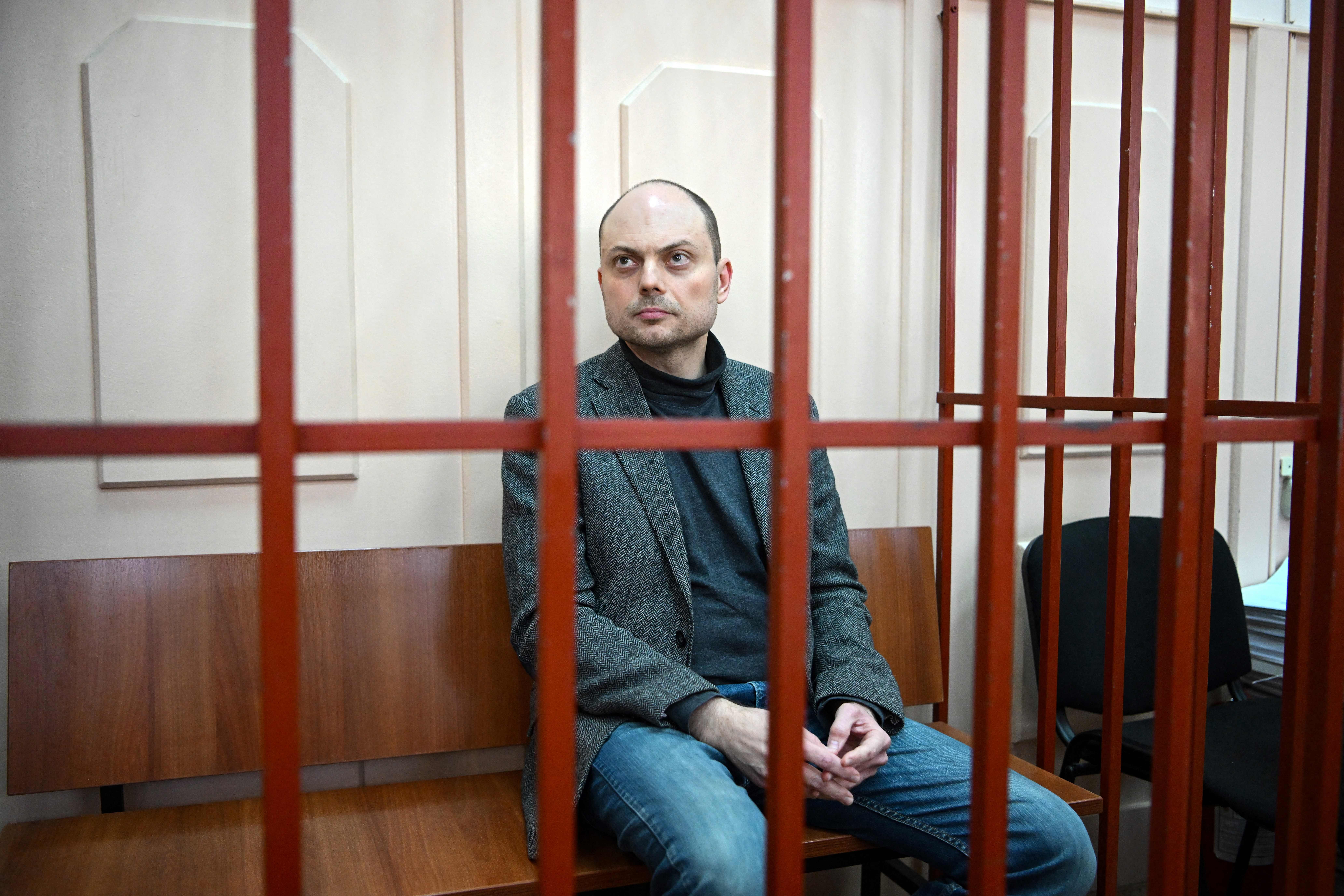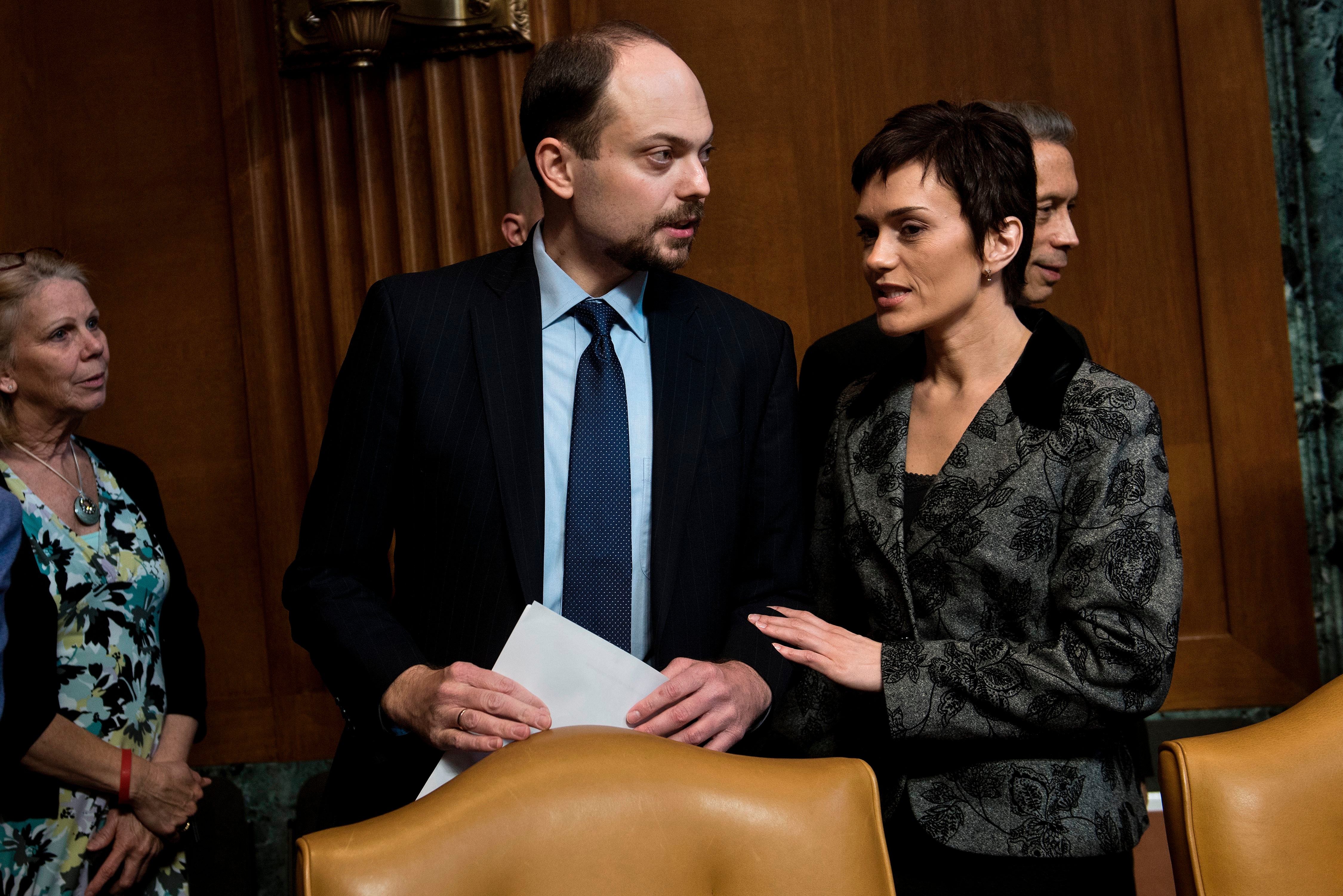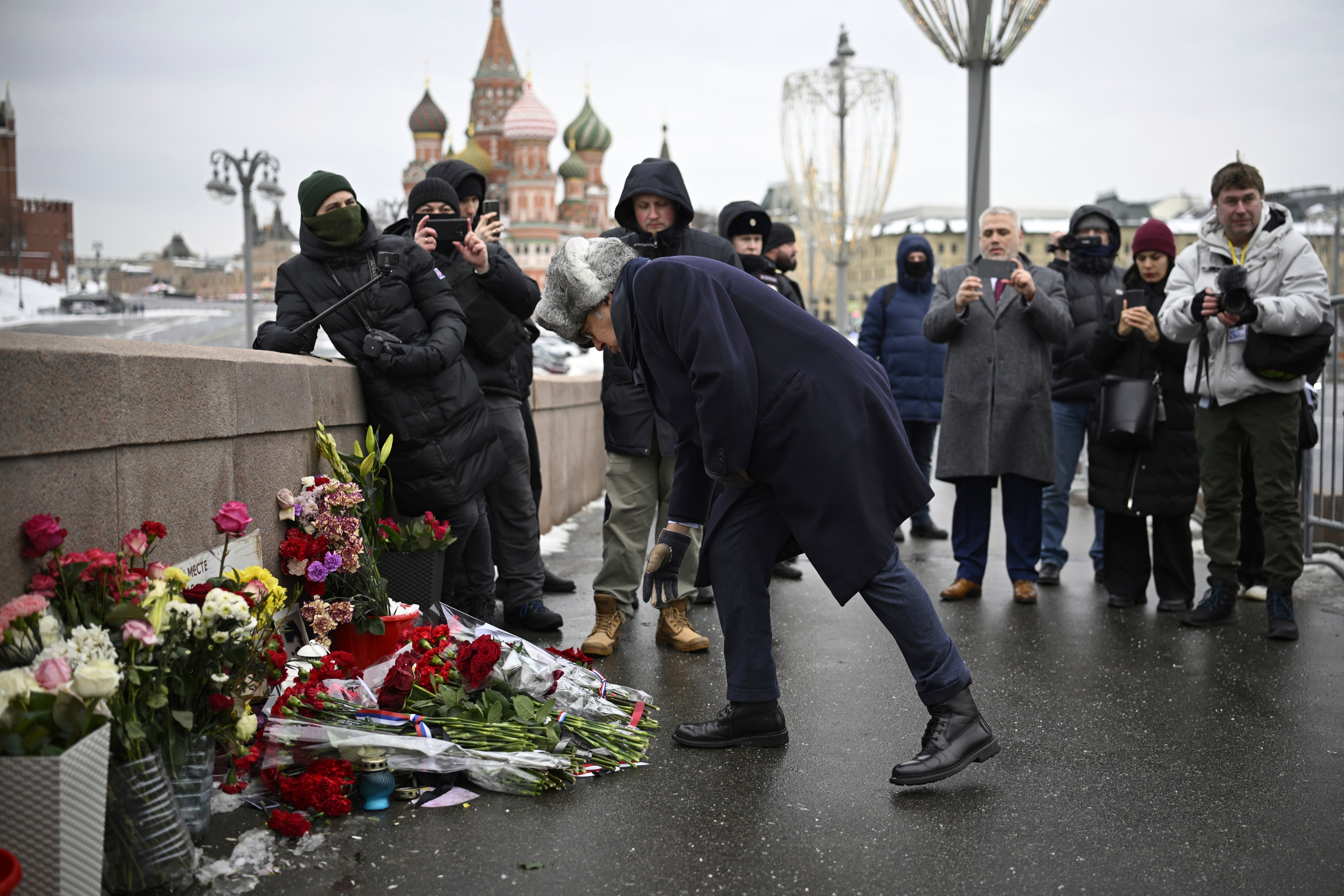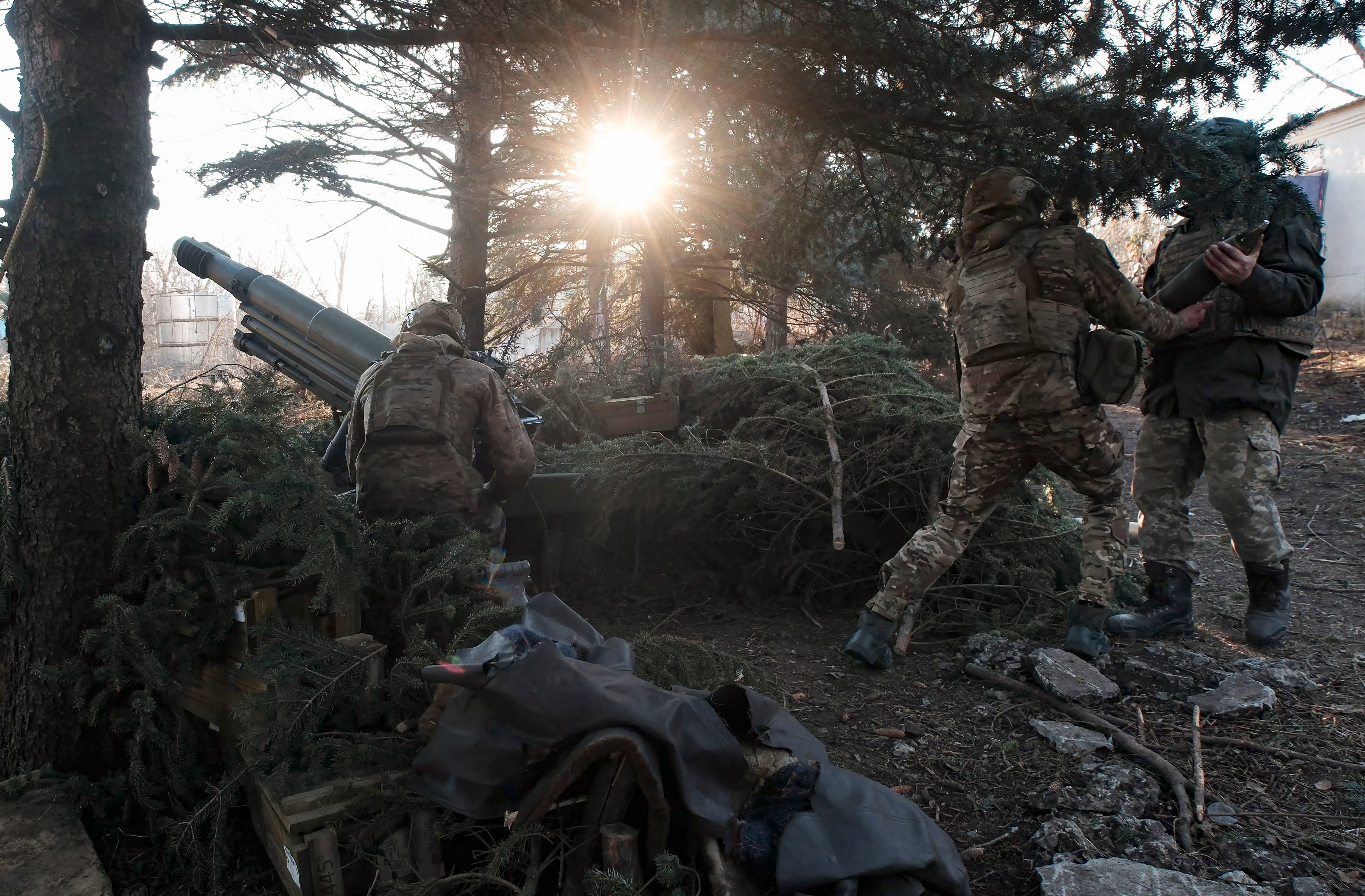Who is Vladimir Kara-Murza? The new face of Russia’s anti-Putin resistance
Vladimir Kara-Murza is serving a 25-year sentence in a Siberian penal colony for speaking out against the war in Ukraine

Your support helps us to tell the story
From reproductive rights to climate change to Big Tech, The Independent is on the ground when the story is developing. Whether it's investigating the financials of Elon Musk's pro-Trump PAC or producing our latest documentary, 'The A Word', which shines a light on the American women fighting for reproductive rights, we know how important it is to parse out the facts from the messaging.
At such a critical moment in US history, we need reporters on the ground. Your donation allows us to keep sending journalists to speak to both sides of the story.
The Independent is trusted by Americans across the entire political spectrum. And unlike many other quality news outlets, we choose not to lock Americans out of our reporting and analysis with paywalls. We believe quality journalism should be available to everyone, paid for by those who can afford it.
Your support makes all the difference.After the death of Alexei Navalny, jailed British-Russian opposition leader Vladimir Kara-Murza has become the face of the anti-Kremlin resistance.
The 42-year-old University of Cambridge graduate was arrested in April 2022 hours after CNN broadcast an interview in which he said Russia was being run by a “regime of murderers”.
A year later, he was sentenced to 25 years in a Siberian penal colony in the Omsk region, where he now resides in a punishment cell only three metres long and one-and-a-half metres wide, nearly 6,000 miles from his wife and children living in the US.
It remains the longest sentence handed down to a Kremlin critic since the fall of the Soviet Union in 1991.
After the death of Mr Navalny in the Arctic Circle penal colony where he was being held, fears have been voiced over the increased risk facing Russian political prisoners such as Mr Kara-Murza.
Grigory Vaypan, a senior lawyer at Memorial, Russia’s oldest human rights group, and laureate of the 2022 Nobel Peace Prize for his defence of political prisoners, said the risk of death facing Mr Kara-Murza is higher than ever.
“Prominent government critics now face increased risks to their lives in Russian prisons. The more prominent the critic, the higher the risk,” he told The Independent.
“This risk is now manifest in the case of Kara-Murza, whom the Russian government already tried to murder twice.”
Who is Vladimir Kara-Murza?
The opposition politician, who is also a historian and a journalist, comes from a long line of Russian critics.
His father, journalist and television host Vladimir Alexeyevich Kara-Murza, was an outspoken critic of Leonid Brezhnev, a Soviet Union leader, and a prominent supporter of reforms under Boris Yeltsin in the post-Soviet 1990s.

He attended school in Moscow before his mother remarried a British man and Mr Kara-Murza moved to England as a teenager. He worked numerous roles in London as a journalist for independent Russian outlets before attending Trinity Hall at the University of Cambridge, where he studied History.
He entered Russian politics in the late 1990s as Vladimir Putin was quietly ascending the ranks of the Kremlin to the presidency at the turn of the millennium. He voted against Vladimir Putin in the 2000 election.
Mr Kara-Murza later became an advisor to government opposition leader Boris Nemtsov, who was murdered in Moscow outside the Kremlin in 2015.
By this point, Mr Kara-Murza had become heavily involved in Russian opposition politics, working alongside key dissident figures such as oligarch Mikhail Khodorkovksy, chess grandmaster Gary Kasparov and Mr Nemstov.
The Kremlin crackdown

In 2015, the same year that his political mentor Mr Nemstov was killed, Mr Kara-Murza was poisoned in what his wife says was a Kremlin assassination attempt. He survived that attempt on his life, only to be poisoned a second time two years later.
Evgenia Kara-Murza remembers the moment he came out of his second coma. They were in a Moscow hospital in the Intensive Care Unit. It was their 13th wedding anniversary.
“He was lying there, looking just like what someone who had been through multiple organ failure would look like,” she said.
“He said that he was so sorry about what had happened because he was hoping to travel to Quebec for a few days with me. Just the two of us.
“I just looked at him and said: ‘What are you talking about? You are alive. That is the best gift I could hope for.’”
In February 2021, a Bellingcat joint investigation alleged that Mr Kara-Murza had been followed by the same FSB unit that allegedly poisoned Alexei Navalny with a nerve agent in 2020.
He has since developed polyneuropathy, a nerve condition that affects his ability to feel his feet and hands. His wife says it was brought on by the poisoning attempts.
The invasion of Ukraine

Mr Kara-Murza was one of a small number of opposition politicians who remained active in Russia after it invaded Ukraine in February 2022 and publicly condemned the war in defiance of new censorship laws.
After three speeches made in Lisbon, Helsinki and Washington, during which he condemned the invasion, Mr Kara-Murza was arrested outside his house in Moscow on 22 April 2022.
He was declared a “foreign agent” and accused of spreading false information about the actions of the Russian military in Ukraine in connection with a speech he had given the previous month in the Arizona House of Representatives, where he said Putin was “dropping cluster bombs on residential areas, mothers’ homes, hospitals, and schools”.
In July later that year, he was additionally charged over his involvement with two foreign-based opposition forums that are labelled by the Russian state as “undesirable”. Finally, on 6 October, he was charged with treason. Prosecutors requested a 25-year jail term, which he would later receive in April 2023.
Join our commenting forum
Join thought-provoking conversations, follow other Independent readers and see their replies
0Comments